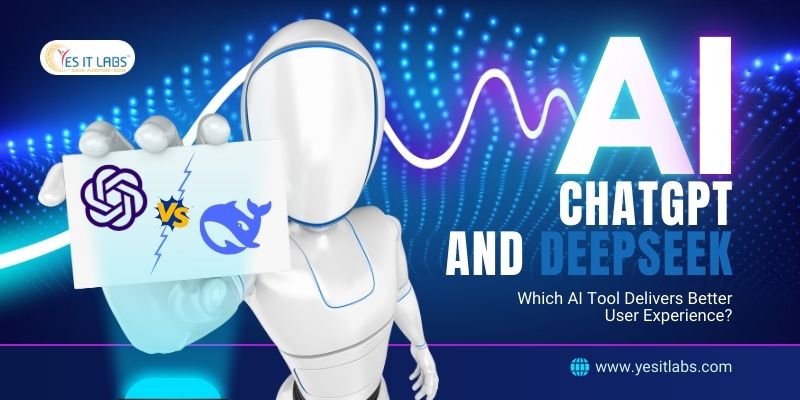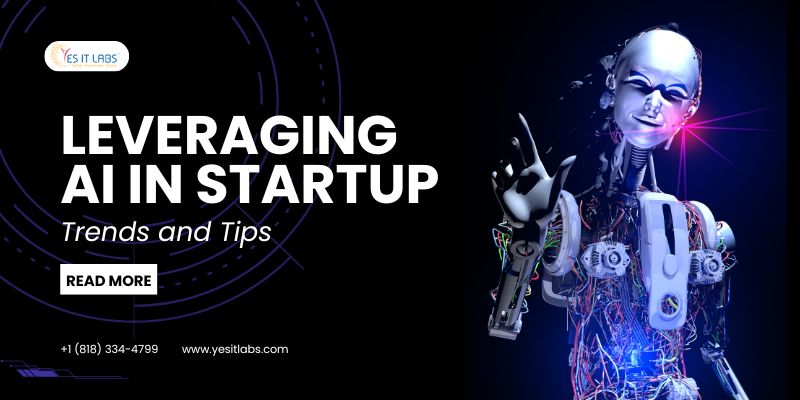
 By Jones Roberts
By Jones Roberts Hybrid App Development for E-Commerce: Building High-Performance Shopping Apps
Today e-commerce is booming like never before. With more people turning to online shopping, the demand for mobile apps that are fast, reliable, and easy to use is at an all-time high. For e-commerce businesses in the USA, creating an app that meets these expectations isn’t just a good idea—it’s a must. Hybrid app development offers a smart, cost-effective way to build apps that perform well across different devices and platforms.
In this blog, we’ll explore why hybrid app development is a great choice for e-commerce businesses, the benefits it offers, and what you should consider to create a high-performance shopping app that stands out.
The Growing Need for High-Performance E-Commerce Apps
The Shift Towards Mobile Shopping
In the USA, shopping on smartphones is becoming the norm. Mobile devices are becoming more and more popular for consumers when it comes to shopping online. This shift means that e-commerce businesses need native mobile apps that offer a smooth, engaging, and fast shopping experience. Whether it’s browsing products, making payments, or tracking orders, users expect their interactions to be seamless and hassle-free.
Challenges of E-Commerce App Development
Developing a top-notch e-commerce app comes with challenges. From ensuring the app works well on different platforms to maintaining speed and security, there’s a lot to think about. Hybrid app development is a solution that helps businesses overcome these challenges efficiently.
What is Hybrid App Development?
Understanding the Hybrid App Framework
Hybrid app development involves building apps using web technologies like HTML, CSS, and JavaScript, but they’re wrapped in a native shell that allows them to run on multiple platforms, such as iOS and Android. This means you can develop an app once and deploy it across various devices, saving time and money.
Hybrid vs. Native: A Comparative Overview
Native mobile apps are built specifically for one platform, offering excellent performance and access to device-specific features. Their development requires separate attention for each platform, requiring time and money. Hybrid app development, on the other hand, offers the advantage of cross-platform compatibility with a single codebase. While native mobile apps may offer slightly better performance, hybrid apps have improved significantly, making them a practical choice for many e-commerce businesses.
Why Choose Hybrid App Development for E-Commerce?
Cost-Effectiveness: Saving Without Sacrificing Quality
Developing hybrid apps is cost-effective, which is one of its biggest advantages. Since hybrid apps use a single codebase for both iOS and Android app development, businesses can save a lot on development costs. This is especially beneficial for startups or small to mid-sized businesses that need to get the most out of their investment.
Faster Time-to-Market: Speeding Up Development
In the competitive world of e-commerce, getting your app to market quickly is crucial. Hybrid app development significantly reduces the time required to develop and deploy an app, allowing businesses to launch their products faster and start generating revenue sooner.
Cross-Platform Compatibility: Reaching a Wider Audience
Hybrid app development allows businesses to reach a broader audience by making their app available on multiple platforms simultaneously. This cross-platform compatibility ensures that your e-commerce app can cater to both Android and iOS users, maximizing your market reach.
Consistent User Experience Across Platforms
A key goal for any e-commerce app is to provide a consistent user experience across all devices. Hybrid app development achieves this by offering a uniform interface and performance, whether the user is on an Android device, an iPhone, or a web browser. This consistency helps build brand loyalty and enhances user satisfaction.
Key Features of High-Performance Hybrid E-Commerce Apps
Seamless Integration with E-Commerce Platforms
A high-performance e-commerce app must integrate smoothly with existing e-commerce platforms like Shopify, Magento, or WooCommerce. This integration allows for real-time inventory management, order processing, and customer engagement, ensuring that the app functions smoothly and efficiently.
Efficient Performance and Speed Optimization

Performance is critical for any mobile app, especially in e-commerce, where slow load times can lead to abandoned shopping carts. When developed with the right tools and practices, hybrid app development can offer excellent performance, ensuring users can browse products, load pages, and make transactions without delays.
Advanced Security Features for Safe Transactions
E-commerce apps place a high priority on security. Implementing advanced security features, such as encryption, secure payment gateways, and two-factor authentication, helps protect user data and builds trust in your brand.
Offline Capabilities: Enhancing User Experience
Hybrid app development has the advantage of being able to function even when offline. By caching data and allowing users to browse products or view their order history without an internet connection, hybrid e-commerce apps can enhance the user experience and keep customers engaged even when they’re not connected.
Best Practices for Developing Hybrid E-Commerce Apps
Choosing the Right Development Framework
The success of a hybrid app depends largely on the framework used for its development. Popular frameworks like React Native, Flutter, and Ionic offer robust tools and features that make it easier to build high-performance hybrid apps. Choosing the right framework that aligns with your business needs is crucial for the success of your e-commerce app.
Prioritizing User-Centric Design and Usability
A user-friendly design is essential for keeping customers engaged with your app. Focus on creating an intuitive interface that makes it easy for users to navigate, search for products, and complete transactions. A user-centric design not only improves the user experience but also increases conversion rates.
Progress Web Apps (PWA): Leveraging their Power
Progressive Web Apps (PWAs) are a powerful tool in hybrid app development. PWAs combine the best features of web and mobile apps, offering offline functionality, push notifications, and fast load times. Incorporating PWA technology can enhance the performance and accessibility of your e-commerce app.
Ensuring Scalable and Future-Ready Architecture
As your e-commerce business grows, your app needs to scale to accommodate increased traffic and transactions. Building your hybrid app with a scalable architecture ensures that it can handle growth without compromising performance. Additionally, keeping the app’s architecture future-ready allows for easier updates and integration of new features as your business evolves.
Case Studies: Successful Hybrid E-Commerce Apps in the USA
How XYZ E-Commerce Company Boosted Sales with a Hybrid App
XYZ, a popular e-commerce company, decided to switch from native mobile apps to a hybrid model to reduce development costs and improve time-to-market. The result was a seamless, high-performance app that not only reduced operational costs but also increased customer engagement and sales by 30%.
The Success Story of ABC Retailer’s Hybrid Mobile Strategy
ABC Retailer, a well-known brand in the USA, leveraged hybrid app development to create a cross-platform shopping app that delivered a consistent user experience across devices. This strategic move resulted in a significant increase in their mobile user base and improved customer retention rates.
Challenges and Considerations in Hybrid App Development

Balancing Performance with Cross-Platform Consistency
While hybrid app development offers the advantage of cross-platform compatibility, ensuring that the app performs equally well on all devices can be challenging. It’s essential to test the app thoroughly on various devices and platforms to ensure a smooth and consistent experience for all users.
Managing App Store Guidelines and Updates
Hybrid app development, like any other mobile app development company offering services, needs to adhere to the guidelines set by app stores like Google Play and Apple App Store. Keeping up with these guidelines and managing updates can be challenging, but it’s crucial to ensure that your app remains available and compliant with all platform requirements.
Overcoming Device Fragmentation Issues
Device fragmentation—where multiple versions of devices and operating systems exist—can pose a challenge in hybrid app development. Ensuring that your app functions smoothly across various devices with different screen sizes, resolutions, and capabilities requires meticulous testing and optimization.
Conclusion: The Future of Hybrid App Development in E-Commerce
The Growing Popularity of Hybrid Apps
As e-commerce continues to grow in the USA, hybrid app development is becoming an increasingly popular choice for businesses looking to build high-performance shopping apps. The cost savings, faster time-to-market, and cross-platform compatibility make hybrid apps a practical solution for reaching a wider audience and staying competitive in the digital marketplace.
Final Thoughts: Investing in Hybrid for Long-Term Success
For e-commerce businesses aiming to deliver a seamless, engaging, and efficient shopping experience, hybrid app development offers a balanced and future-ready approach. By investing in a hybrid app, you can ensure that your business remains agile, scalable, and prepared to meet the evolving demands of mobile-savvy consumers.
Tags: android apps development, e-commerce apps, e-commerce apps development, hybrid apps development, iOS mobile app development, mobile app development company, Native Mobile AppsLatest Resources
ChatGPT and DeepSeek: Which AI Tool Delivers Better User Experience?
January 29, 2025
Top Frameworks for Cross-Platform App Development in 2025
January 22, 2025
A Guide to Types of Artificial Intelligence (AI)
January 14, 2025
Key Benefits of React Native App Development
January 7, 2025
Leveraging AI in Startup Software Development: Trends and Tips
December 30, 2024














 Services
Services

